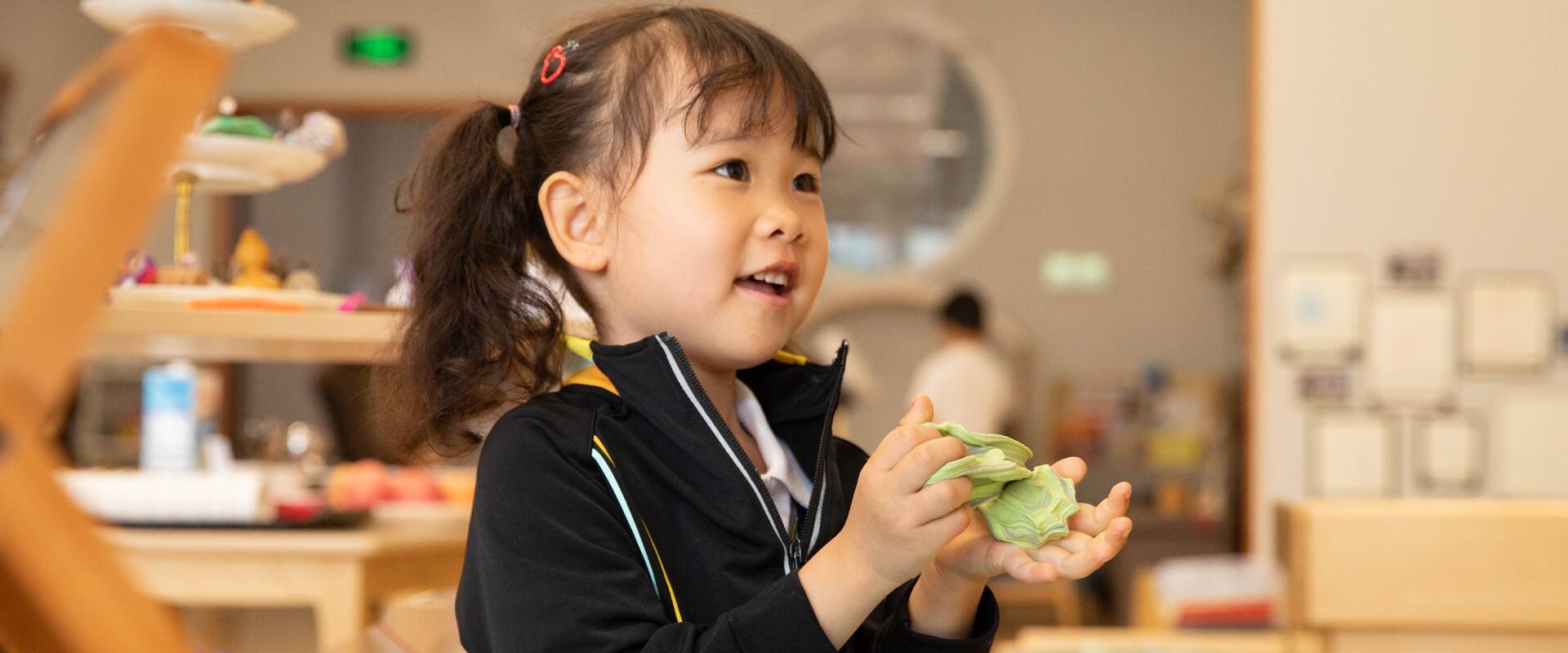Oracy for children is extremely important, it is the tool that underpins writing, reading, and improved learning outcomes. But for young children, as with many things, it is not always straightforward.
Some children may not speak until much later than their peers, and a few speak very early. Parents can sometimes worry a great deal about a delay in speech and there can be multiple causes. In some cases, a child just prefers not to speak until they are ready, or they may have older siblings who they use to 'speak for them', for example.
My fourth niece was a good example of this - she would point to things and grunt when she really had to but the rest of the time, she relied on her sisters to do it for her (or possibly she could not get a word in edgeways with three older sisters). Over time, it had no long-term effect at all. For other children it can be a sign of a hearing problem (often temporary) or another physical issue, and these might be corrected in various ways medically.
For second language learners there is a whole extra layer to this, commonly known as the silent period. I have often, over the years, had parents worry that their children are not speaking the second language they are exposed to (in my cases usually English) and I would like to address a few common concerns around this:
Please note that almost all of these need the age of the child taken into consideration - there is a huge difference between two years old and six years old in a child's lifetime.
My child isn't speaking any English at all, and they've been here a whole year
Because your child will not speak to you in English does not mean they cannot or do not. Often, they just do not want to speak it to you and they also often do not like to be 'put on show' for relatives, strangers or friends, young children do not see the world in the same way we do and frankly if they do not want to, they will not. They will also 'select' adults to whom they will allocate language and only speak to them at first. Always ask your teacher what they hear from the children - it is often their teachers who will get the full benefit until they are ready to share it with you. For years my daughter absolutely would NOT speak Chinese in front of or to me, I would hear her chatting to the Ayi or her friends, and other Chinese colleagues from round the school would comment on her fluency. But if she saw me listening or I asked her to translate for me she would say 'I don't know' and flatly refuse. She has only really come out of that since she was about ten years old, so I have been relying on other people to tell me what she knows. These days she prefers to critique all my attempts, roll her eyes, say it properly and declare my tones as 'rubbish'.
The other part is the 'silent period', in which children will choose not to speak at all to anyone in their second language until they feel that they are good enough to do so. It is easy to judge how much they actually understand as they will often give themselves away - easily following instructions, responding to stories with facial expression, laughing at funny comments. The silent period can last from days to months. Years ago, I had one child who went for two years without speaking English and then began quietly answering questions in my group time and smiling at me conspiratorially. In fact, I had to get other staff to sneak in to listen without him realising to get them to believe me! And over the next year he went from that to merrily chatting away to anyone.
The key and most important factor though are that during these times the children are confidently using the home language. And from that we can gauge whether there are any global language issues or muteness, or if it is purely just one language and wait it out.
My friend's child can say lots of English words
Never compare your child to others unless you have actual developmental concerns, down this path madness lies. I can assure you that over the years I have had many children come to interview able to parrot and chant '1,2,3,4,5,6,7,8,9,10' 'My name is...' red, blue, green, yellow' etc. And while these can be a good start, I have equally seen how often the children actually have no concept of what the words mean at all or how to use them.
Having also been a Primary School Head for some years, it was fascinating (and common) to get children who had been 'prepared' for the interview. I would ask them what they enjoyed reading and often got an almost identical spiel which went 'My favourite book is Harry Potter. I like this book because it is about witches and wizards. My favourite character is Harry Potter because I think he is cool.' When I would then ask them a question such as 'Who do you think is the better wizard - Hermione or Harry?' and 'Why do you think that?' I would often be met with dead silence.
Young children make developmental steps at different times, and each child is unique and will have had different levels of exposure outside school, it is never a simple comparison.
I speak English, but my child will not speak to me
Consider whether the conversation is on your terms or theirs. Often engaging them in conversation about things they are interested in is a far more successful way to encourage them to talk and they might surprise you. Meet them where they are, engage with something meaningful to them - not to you as an adult. Closed questions for example will always elicit closed answers, whereas sharing a book about dinosaurs might reveal all kinds of language you were not expecting.
My child does not speak English, but their Chinese is quite advanced
Nothing to worry about generally, in fact it is a good sign that their English will come with more strength and depth in time.
My child does not speak English or Chinese very well
This is definitely something that I would raise with the teachers, it may need a closer scrutiny to determine what the cause maybe.
My child does not speak at all
This one also requires more scrutiny, they may simply be a 'late speaker', but they might also be a selective mute for example. Or in rare cases, have a physical reason. In some cases, it has been noted that late speaking might be interlinked with very high intelligence (Albert Einstein and Nobel Prize winner Gary Becker were both late speakers for example).
My child never stops talking
Anyone with a very talkative child tends to both rejoice in it and find the constant stream of chatter exhausting. In most cases there is no reason to be concerned (except for your own ears getting worn out) but occasionally it might be a sign of a neurodiversity such as ADHD.
My child's grammar and pronunciation are not correct
Again, if this is in the first language it may be something to have checked out by a Speech Therapist. Early intervention can help a great deal on this front. However, also bear in mind that some of this is absolutely and perfectly normal and children will often grow out of it, there are certain sounds often mispronounced by young children. In the case of my son, it was caused by early deafness but will probably right itself over time.
If it is in the second language, they might just be mishearing the words, and again over time as they hear those words many times, they will self-correct. Even adults do this - someone yesterday was trying to wish me 'Good Evening', but it sounded more like 'Good eyung'. However, I thoroughly applaud the attempt and if you ever have the misfortune to hear me attempting to speak Chinese you will know that I also speak from experience.
One of the things which really helps with this is phonic learning - so if your child is in EY3 or EY4 PLEASE make sure they arrive at school by 8.15 in time for these really important sessions.

